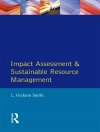′Filling an enormous gap in the geographic literature, here is a terrific book that shows us how to think about and practice human geographic research′ —
Professor Jennifer Wolch, University of Southern California
` Practising Human Geography lucidly, comprehensively, and sometimes passionately shows why methodology matters, and why it is often so hard. To choose a method is to choose the kind of geographical values one wants to uphold. You need to get it right.These authors do′ — Trevor Barnes, University of British Columbia
`Practising Human Geography is a godsend for students. Written in an accessible and engaging style, the book demystifies the study of geographical methodology, offering a wealth of practical advice from the authors′ own research experience. This is not a manual of approved geographical techniques. It is a reflexive, critical and highly personal account, combining historical depth with up-to-the-minute examples of research in practice. Practising Human Geography is a comprehensive and theoretically informed introduction to the practices of fieldwork, data collection, interpretation and writing, enabling students to make sense of their own data and to develop a critical perspective on the existing literature. The book makes complicated ideas approachable through the effective use of case studies and a firm grasp of contemporary debates′ — Peter Jackson, Professor of Human Geography, University of Sheffield
Practising Human Geography is a critical introduction to key issues in the practice of human geography, informed by the question ′how do geographers do research?′ In examining those methods and practices that are essential to doing geography, the text presents a theoretically-informed discussion of the construction and interpretation of geographical data — including: the use of core research methodologies; using official and non-official sources; and the interpretative role of the researcher.
Framed by an overview of how ideas of practising human geography have changed, the twelve chapters offer a comprehensive and integrated overview of research methodologies. The text is illustrated throughout with text boxes, case studies, and definitions of key terms. Practising Human Geography will introduce geographers — from undergraduate to faculty — to the core issues that inform research design and practice.
Содержание
Changing Practices of Human Geography
An Introduction
PART ONE: CONSTRUCTING GEOGRAPHICAL DATA
Official Sources
Non-official Sources
Imaginative Sources
Talking to People
Observing, Participating and Ethnographies
PART TWO: CONSTRUCTING GEOGRAPHICAL INTERPRETATIONS
Sifting and Sorting
Enumerating
Explaining
Understanding
Representing Human Geographies
The Politics of Practising Human Geography
Об авторе
Chris Philo is a professor of geography at the University of Glasgow. His specialist interest is the historical geography of “spaces reserved for insanity, ” meaning people with mental health problems, across many centuries in Britain. He is fascinated by the history and theory of geography, as both academic subject and wider way of engaging with the world. He has undertaken critical-scholarly research on the geographies of “outsider” human groupings, including children and people with learning disabilities, as well as on the geographies of human-animal relations, rural geographies, and a range of health geographies. He has long been concerned with what psychoanalytic and psychological approaches can bring to geographical studies.












